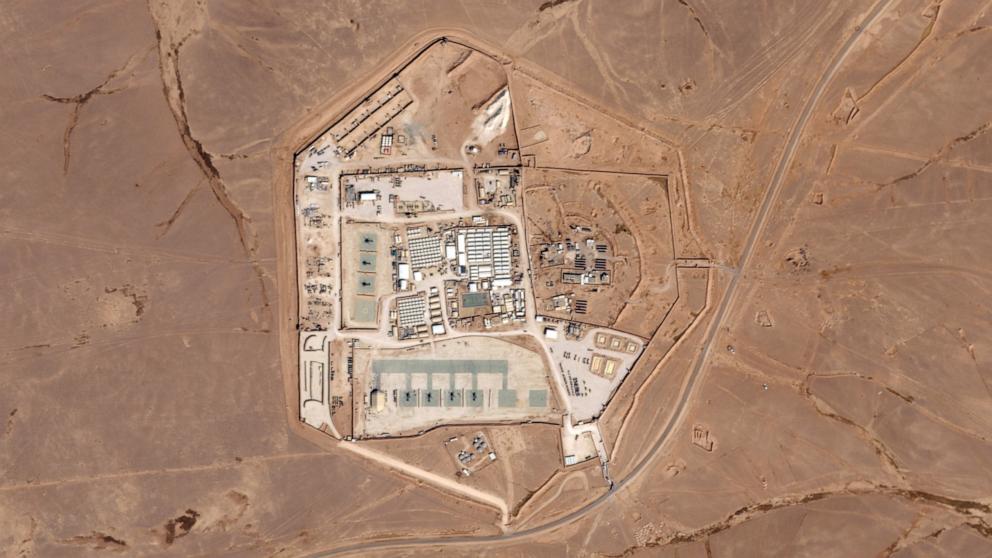Congressional leaders expressed grief on Sunday for the three American service members who were killed in a drone strike in Jordan and urged for retaliation against the Iran-backed militants held responsible for the attack. The drone strike represents the first deaths of U.S. troops in combat since the outbreak of the Israel-Hamas conflict following the Oct. 7 terrorist attack by Hamas. While the White House has been backing Israel against Hamas, it has also been trying to contain the conflict to avert a wider war in the Middle East. The U.S. has stated that various fighters, supported by Iran, have carried out assaults on U.S. forces and others in opposition to Israel. Until the recent strike, the U.S. had conducted several retaliatory operations against Iran-linked groups. Iran has not publicly addressed the strike in Jordan. Gen. CQ Brown Jr., the chairman of the Joint Chiefs of Staff, recently stated in an interview with ABC News’ Martha Raddatz that he believes Iran, a regional power with major rivalries in the Middle East, does not desire a war with the U.S. Nevertheless, on Sunday, Republican lawmakers criticized President Joe Biden’s approach to Iran and some called for direct action against the country.
“We are saddened by the loss of three American heroes in Jordan last night, and we are praying for their families and for the … other service members who have been injured. America must send a crystal clear message across the globe that attacks on our troops will not be tolerated,” House Speaker Mike Johnson, R-La., wrote on X, formerly Twitter. “Heartbroken and outraged by the death of three U.S. service members and the wounding of many others during the horrific terrorist attack in the Middle East. Praying hard for all affected,” House Minority Leader Hakeem Jeffries, D-N.Y., also wrote on the platform. “Every single malignant actor responsible must be held accountable.” Rep. Michael McCaul, R-Texas, the chair of the House Foreign Affairs Committee, noted in his own statement that the strike was just the latest by Iranian-backed proxies across the Middle East, including in Iraq and Syria, by Hezbollah in Lebanon and by the Houthis in Yemen. He called for a broader policy realignment, contending that the White House had “failed.” “We need a major reset of our Middle East policy to protect our national security interests and restore deterrence,” McCaul said. Senate Minority Leader Mitch McConnell echoed that, with the Kentucky Republican saying in a statement, “Last night, the cost of failure to deter America’s adversaries was again measured in American lives. We cannot afford to keep responding to this violent aggression with hesitation and half-measures.”
Sen. Lindsey Graham, R-S.C., said the Pentagon should respond by targeting Iran — a major move that could trigger further consequences and involve the U.S. more deeply in the region. “The Biden Administration can take out all the Iranian proxies they like, but it will not deter Iranian aggression. I am calling on the Biden Administration to strike targets of significance inside Iran, not only as reprisal for the killing of our forces, but as deterrence against future aggression,” Graham said in a statement. “The only thing the Iranian regime understands is force. Until they pay a price with their infrastructure and their personnel, the attacks on U.S. troops will continue.”
U.S. officials reported that the one-way drone strike took place early on Sunday at the Tower 22 outpost in Jordan, near the Syrian border. According to a defense official, at least 30 U.S. service members were injured in addition to the three killed. In a statement, President Joe Biden honored the slain service members for being “unwavering in their bravery. Unflinching in their duty. Unbending in their commitment to our country” before offering a warning of his own. “Have no doubt — we will hold all those responsible to account at a time and in a manner our choosing,” he said in a statement. Later Sunday, in South Carolina, he vowed that “we shall respond.” ABC News’ Shannon K. Crawford, Fritz Farrow, Mariam Khan and Lauren Peller contributed to this report.
Recent drone attack killing US troops prompts Biden retaliation pledge as Republicans advocate for stronger action














